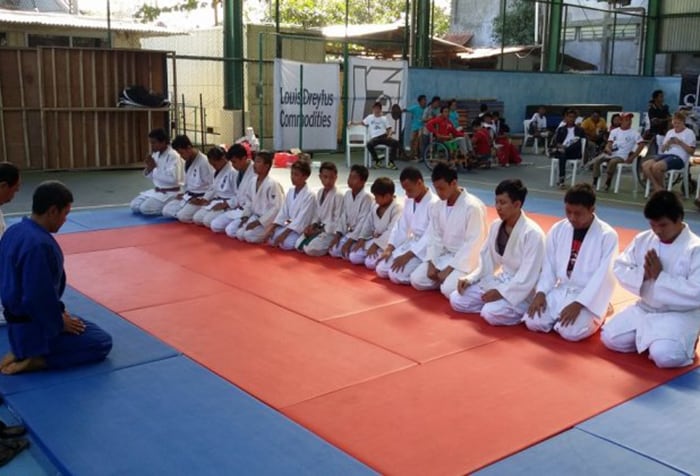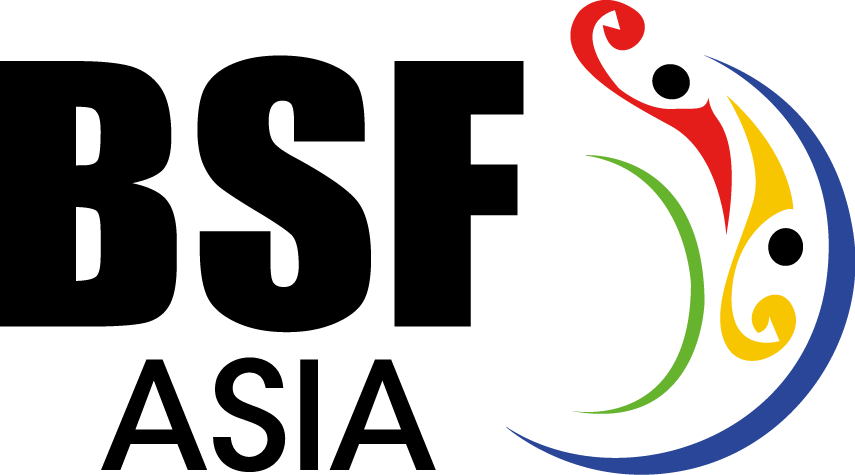
Blind Judo
BSF Asia provides programs in the following;
BLIND JUDO
BSF Asia started its Blind Judo program back in 2013 together with Dria Raba Blind Institute in Denpasar.This is the first program of this sort anywhere in Indonesia let alone Bali.
With the enthustiastic support of Dria Raba’s director Ibu Dayu,and the Judo Coach Pak Made of the Bali Police Judo coach ,a group of visually impaired youth pioneered this new sport.
As BSF Founder Rodney Holt and creator of the Blind Judo program indicates “Far and above the inherent objectives of all physical and sporting activities, it represents for the visually impaired boys, a means of escape from a sometimes sedentary existence and from the isolation often imposed by a disability. For blind persons and those with low vision, Judo can be instrumental in (re)attaining independence of movement and in developing physical capacities which permit better adaptation to everyday life.
Judo can contribute to these objectives in three sectors: motor, psychological and social.”
The motor sector
Blindness can cause certain motor problems such as difficulty in attitude integration and body-awareness (since sight is an important factor here); balance problems; problems with motor co-ordination; posture problems; and orientation difficulties.
Apart from the numerous motor and physical qualities which Judo helps to develop in people with normal health, it is perhaps, useful to mention the manner in which these are indispensable for blind people.
Falling: It is essential for a blind person to learn to fall in a suitable manner, since uncertainty of movement, due to blindness, often leads to painful falls. By learning secure positions, blind people can avoid accidents in everyday life.
Balance: This is a fundamental element of Judo and an indispensable factor for the blind. It helps to encourage the visually impaired person’s integration in space.
Exercise: Just like sighted people, a blind child must learn to develop his or her physical capacities. He/she will then be able to know and control the body better. Improved control over the motor forces, such as strength, speed and agility, will provide a weapon to combat the consequences of blindness which can otherwise include a sedentary existence.
Kinesthetic sensations: It can be said without exaggeration that blindness does not constitute a serious problem for a Judoka. In practice, seeing persons do not look at their opponents during combat; they try to distribute their strength and adapt their behavior. A blind person is, therefore, not impaired in the discovery of these physical sensations or in their refinement. It is the perception of the strength and behavior of the opponent which induces the choice of the appropriate reaction. Sight does not play a preponderant part in this process.
The psychological sector
It is sometimes necessary to reduce the impact of a visual impairment in order to obtain:
Autonomy: Judo teaches blind people to take the initiative without risk. Blind people learn to manage without the special assistance of other people. This encourages self-assurance in everyday life allowing them to take calculated risks. Blind people quickly learn to find their bearing (space, time) in judo training and to move around with self-assurance.
Motivation: Judo is attractive because it permits blind people to measure themselves on an equal basis with seeing people. Blind athletes can participate officially in the competitions organized by the International Blind Sports Association and its member countries, as well as all tournaments for the sighted. They can attain the same ranks and titles as seeing people. All these factors contribute to self-assurance in their physical capacity, which forms a counter-balance for their visual impairment.
The social sector
The battle against isolation: A disability of any description often entails isolation and a sedentary existence. Membership in a sports organization provides the opportunity to get out of special schools, to meet other people and measure against them on an equal basis.BSF Blind Judoteka’s train with seeing judotekas.
Respect for rules and for other people: Blind people are often suspicious of their environment and even avoid contact which could he a source of insecurity. This is why motivating, physical activity can reduce the obstacles, facilitate contact with other people and promote integration with the world of the seeing.
Sportsmanship: As with sighted students, blind individuals learn through their participation in sports all the values of good sportsmanship. Judo in particular has a character building component that stresses the development of a strong ethical code.
The future
Holt continues “our long term plan is that by the Asian ParaGames in 2018 here in Indonesia,the BSF Blind Judo athletes can represent Indonesia.”
